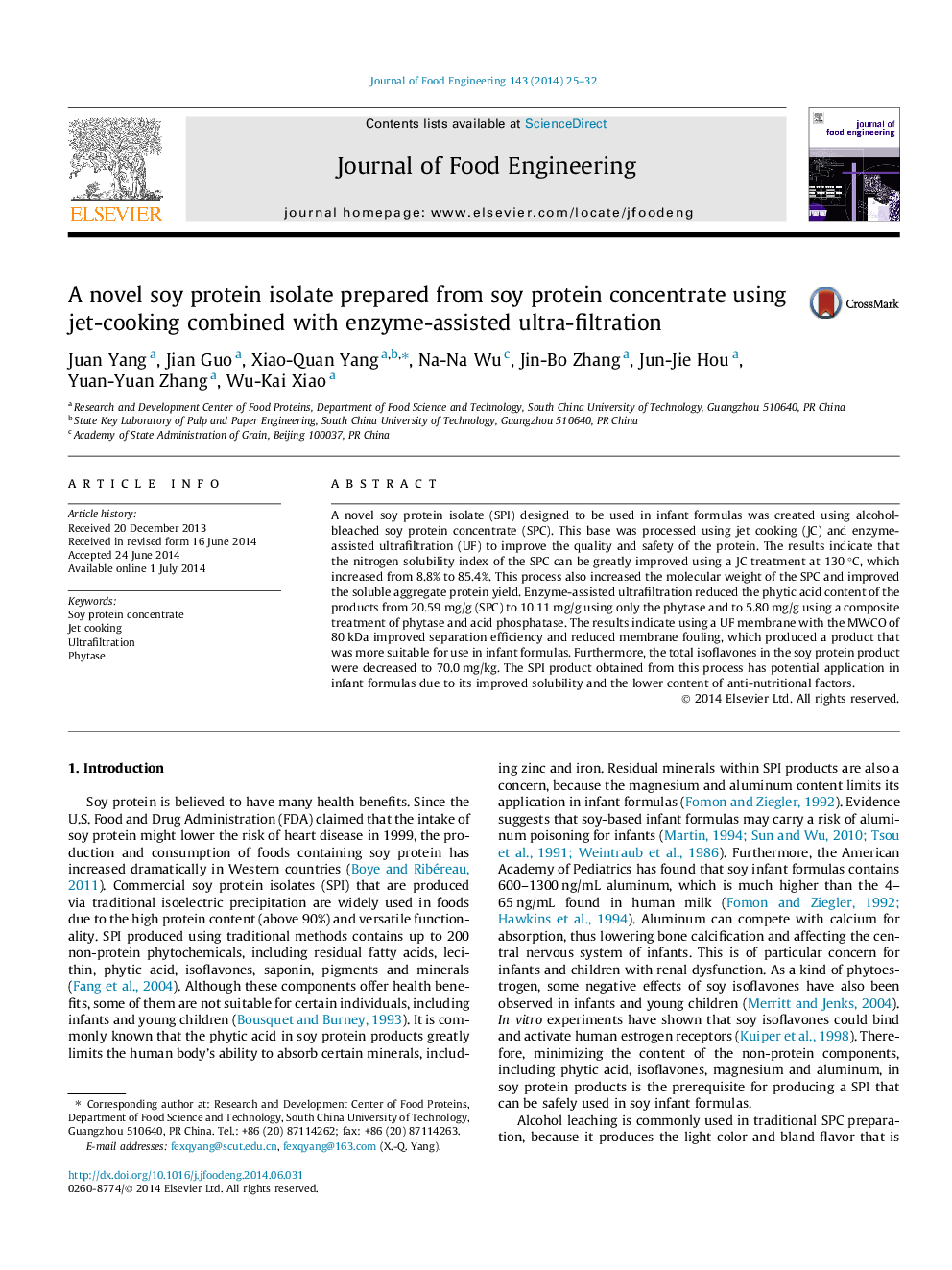| Article ID | Journal | Published Year | Pages | File Type |
|---|---|---|---|---|
| 223032 | Journal of Food Engineering | 2014 | 8 Pages |
•A novel soy protein isolates was developed for potential use in infant formulas.•The product was produced from soy protein concentrate.•JC combined with enzyme-assisted ultrafiltration was used to prepare the product.•The resulted product had low contents of phytic acid, isoflavones, Mg and Al.
A novel soy protein isolate (SPI) designed to be used in infant formulas was created using alcohol-bleached soy protein concentrate (SPC). This base was processed using jet cooking (JC) and enzyme-assisted ultrafiltration (UF) to improve the quality and safety of the protein. The results indicate that the nitrogen solubility index of the SPC can be greatly improved using a JC treatment at 130 °C, which increased from 8.8% to 85.4%. This process also increased the molecular weight of the SPC and improved the soluble aggregate protein yield. Enzyme-assisted ultrafiltration reduced the phytic acid content of the products from 20.59 mg/g (SPC) to 10.11 mg/g using only the phytase and to 5.80 mg/g using a composite treatment of phytase and acid phosphatase. The results indicate using a UF membrane with the MWCO of 80 kDa improved separation efficiency and reduced membrane fouling, which produced a product that was more suitable for use in infant formulas. Furthermore, the total isoflavones in the soy protein product were decreased to 70.0 mg/kg. The SPI product obtained from this process has potential application in infant formulas due to its improved solubility and the lower content of anti-nutritional factors.
